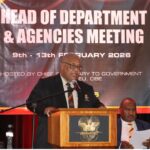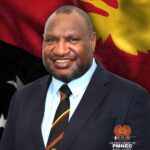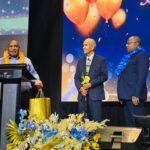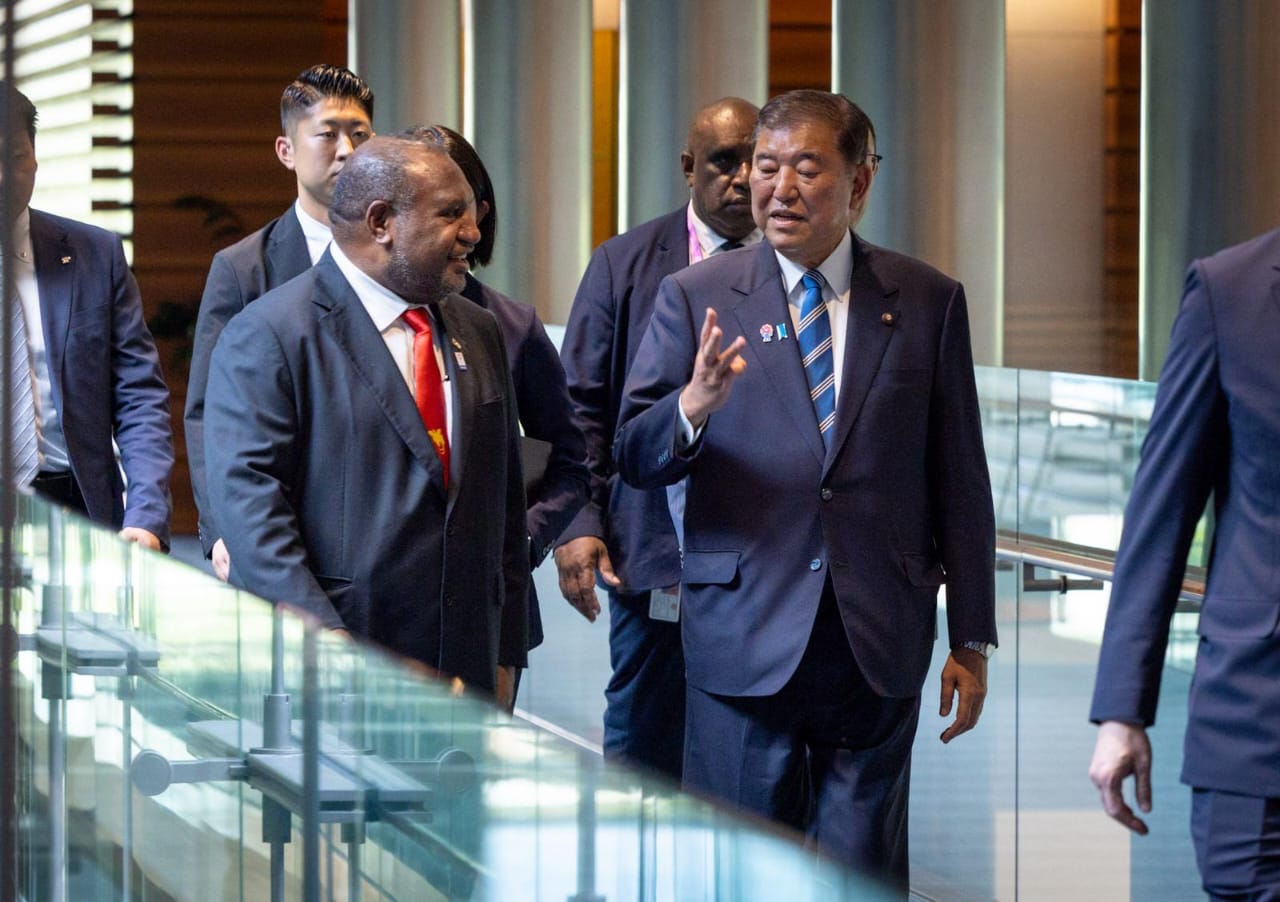Prime Minister Hon. James Marape has successfully concluded a high-level visit to Japan, marking a milestone in Papua New Guinea–Japan relations as both nations celebrate 50 years of diplomatic partnership.
The visit, which spanned key engagements in Osaka and Tokyo, showcased deepening cooperation in trade, investment, fisheries, energy, education, and infrastructure — and reaffirmed Japan’s role as one of PNG’s most enduring and strategic partners.
PM Marape First World Leader to Congratulate Re-Elected Japanese Prime Minister
On Tuesday, 22 July, Prime Minister Marape became the first Head of Government to formally congratulate the re-elected Prime Minister of Japan, His Excellency Shigeru Ishiba. The two leaders met at the Japanese Prime Minister’s office in Tokyo for a highly productive bilateral dialogue, centred on strengthening ties in trade, investment, and development.
The leaders discussed the strategic direction of PNG–Japan relations for the next 50 years, reaffirming mutual respect and shared aspirations for peace, prosperity, and regional cooperation. The meeting built on the legacy of five decades of partnership, with both Prime Ministers pledging to elevate economic and technical cooperation to a new level.
“It was a great honour to be the first national leader to personally congratulate Prime Minister Ishiba on his re-election. Japan is one of Papua New Guinea’s most trusted and enduring partners — a friend who stood with us before and after Independence,” said Prime Minister Marape.
Prime Minister Marape expressed PNG’s appreciation for Japan’s ongoing support, including:
• The proposed upgrade of Tokua Airport to a standard similar to Nadzab Tomodachi International Airport,
• Continued investment in agriculture and fisheries, and
• A reaffirmed commitment to long-term economic cooperation.
In the bilateral meeting, Prime Minister Marape also proposed the establishment of a new framework to reset and elevate the economic relationship between the two countries. He formally suggested a Comprehensive Economic Partnership Agreement (CEPA) to govern trade and investment between
PNG and Japan for the next 50 years.
“We proposed a fresh framework — a CEPA — that would institutionalise the next chapter of our bilateral relations,” PM Marape stated. “Our aim is to reset and expand trade, create more investment opportunities, and improve market access.”
Prime Minister Marape highlighted that while Papua New Guinea exported more than K6 billion worth of goods to Japan last year, imports from Japan were valued at less than K1 billion, creating a significant trade imbalance in PNG’s favour. Japan currently purchases approximately 40% of PNG’s LNG, 51% of its minerals, and over 50% of its seafood exports.
“The Japanese Prime Minister asked us to continue supplying minerals, energy, and food — with a particular interest in rice,” PM Marape said. “We also proposed a tariff-free trade arrangement with Japan. Our respective officials will now begin reviewing these proposals ahead of formalising a long-term agreement.
“We are grateful for Japan’s consistent partnership — from infrastructure to education, fisheries to finance. Our talks were frank, forward-looking, and built on the mutual belief that we can achieve more by working together,” Prime Minister Marape noted.
Apart from this high-level meeting, PM Marape met with leading Japanese private sector stakeholders in agriculture, manufacturing, forestry, banking, and mining, reinforcing Papua New Guinea’s position as an attractive investment destination.
“We are opening our doors wide to Japanese investors — not just in resources, but in agriculture, tourism, and clean energy. Our reforms are creating a more stable and transparent environment for long-term partnerships,” PM Marape added.
Japan has remained a consistent partner to Papua New Guinea since opening its JICA office in 1974 and formalising diplomatic relations in 1975. Japan’s bilateral investment has surpassed K6 billion, with ongoing trade in minerals (notably from Ok Tedi), liquefied natural gas, cocoa, coffee, and up to 30 percent of PNG’s seafood exports.
PNG Shines on the World Stage in Osaka
In Osaka, Prime Minister Marape officiated at Papua New Guinea National Day at the 2025 World Expo, where he celebrated 50 years of diplomatic relations with Japan. He called for enhanced collaboration in innovation, tourism, cultural exchange, and sustainable development, while showcasing PNG’s cultural identity and emerging economy.
“This Expo is more than an exhibition — it’s a platform to show the world who we are and the values we stand for. Japan has given us this wonderful opportunity, and we are here to strengthen a friendship that has lasted half a century,” he said.
Tokyo Engagements Cement Economic Cooperation
In Tokyo, Prime Minister Marape engaged in a series of high-level bilateral meetings:
• Japan Bank for International Cooperation (JBIC) reaffirmed its commitment to renew its MoU with PNG by Independence Day (16 September), enabling resumed investment cooperation in major resource projects.
• ENEOS Xplora Inc., a key LNG stakeholder, was invited to partner with Kumul Petroleum and Kumul Minerals to expand energy cooperation.
• JOGMEC (Japan Organisation for Metals and Energy Security) was encouraged to support clean energy initiatives and battery technology investments in PNG.
“These engagements are part of our broader economic transformation. We want Japanese companies to be at the forefront of new investment in PNG — from LNG and gold to battery tech and carbon-free energy,” said PM Marape.
Fisheries Sector Boosted Through Major New Partnerships
Multiple fisheries agreements and investments were announced:
• A K111 million fisheries development project in Kavieng was confirmed, with K92 million funded by JICA and K20 million by PNG’s National Fisheries Authority (NFA).
• JICA also pledged K92 million for a major redevelopment of the National Fisheries College, including a new research and surveillance vessel.
• Japan’s renowned “Tuna King,” Mr. Kiyoshi Kimura of Kiyomura Corporation, expressed interest in investing in PNG’s seafood value chain, including cold storage, onshore processing, and a distribution hub in Japan.
“Our fisheries sector is poised for transformation. These new partnerships — from college upgrades to private investment — will help us build a world-class seafood industry,” said Prime Minister Marape.
PNG Presents as a Trusted Investment Destination
At the PNG Mining Seminar in Tokyo, themed “Investing in Impact”, Prime Minister Marape assured Japanese investors that PNG offers a stable, resource-rich, and democratic business environment, with a proven track record of supplying global markets over the past 40 years.
He highlighted future opportunities in:
• Wafi-Golpu and Frieda River Mines,
• Long-term copper and gold production from Ok Tedi, and
• Renewable energy, clean tech, and agriculture.
“We’ve never failed to deliver on our mining and energy contracts — and we never will. PNG is a trusted partner, and our resources will be there for the long haul,” he said.
Conclusion
Prime Minister Marape’s visit not only celebrated 50 years of PNG–Japan relations but also charted the next 50 years of collaboration. With over K6 billion in past investments, increasing trade volumes, and growing people-to-people ties, Japan remains a foundational partner in PNG’s journey toward a K200 billion economy by 2030.
“Our partnership with Japan is built on trust and mutual respect. As we celebrate 50 years of friendship, we are planting seeds for the next 50 years — a future of prosperity, sustainability, and shared progress,” PM Marape concluded.






